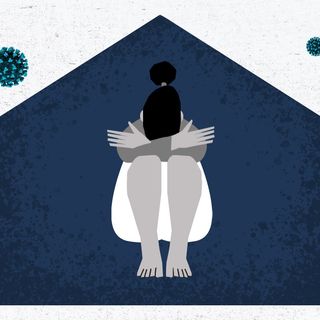The extended periods of lockdown prompted by the Covid19 pandemic has severely impacted the global economy. In order to make the choice between lives and livelihoods a little easier, some countries are considering handing out immunity passports, or risk-free certificates, to Covid19-survivors so that they can return to work, and and help restart the economy. However, the WHO has strongly criticized this idea.
While countries like the UK and France have been considering the introduction of immunity passports for a while now, Chile has become the first country to launch an immunity passport scheme. Last week, the Chilean Health Ministry said that more than 4,600 Chileans, who have recovered from Covid19, will now be eligible to receive immunity passports making them exempt from anti-contagion restrictions. In the US, the Mayor of Los Angeles has hinted that immunity passports could be a part of their reopening strategy.
What is an immunity passport?
An immunity passport is a document, digital or otherwise, that governments are considering granting to individuals who have recovered from Covid19. These back-to-work passes are based on the assumption that Covid19-survivors would be immune to re-infection, and so they could re-enter workplaces — and get the economy going — without fear of infection.
Who gets an immunity passport?
In order to determine whether an individual is eligible for an immunity passport, they would have to undergo a blood test to ascertain whether their body has developed antibodies specific to Covid19 — so that they can fight off the novel coronavirus if they are re-exposed to, or re-infected by, it.
Related on The Swaddle:
Study: Covid19 Most Contagious Before Symptoms Appear
What’s wrong with the idea of immunity passports?
The WHO has said that there is absolutely no evidence, at present, to suggest that people who have recovered from Covid19, and have antibodies to fight off the coronavirus, are protected from re-infection. With reports coming in of recovered Covid19 patients from China and South Korea contracting the coronavirus again, the concept of immunity passports seems deeply flawed.
“People who assume that they are immune to a second infection because they have received a positive test result may ignore public health advice. The use of such certificates may therefore increase the risks of continued transmission,” the WHO stated in a brief issued on Friday. Moreover, the organization added that even the tests to detect antibodies needed further validation to determine their accuracy and reliability.
“I abhor the fact that we would give people passports, a green one or a red one, depending on their serology status. That will lead to forgeries, that will lead to people wilfully infecting themselves to the virus. This is just not a good idea. It is an extremely bad idea,” virologist Professor Marc Van Ranst, a member of the Belgian government’s Risk Assessment Group and Scientific Committee on the Coronavirus, told BBC.




